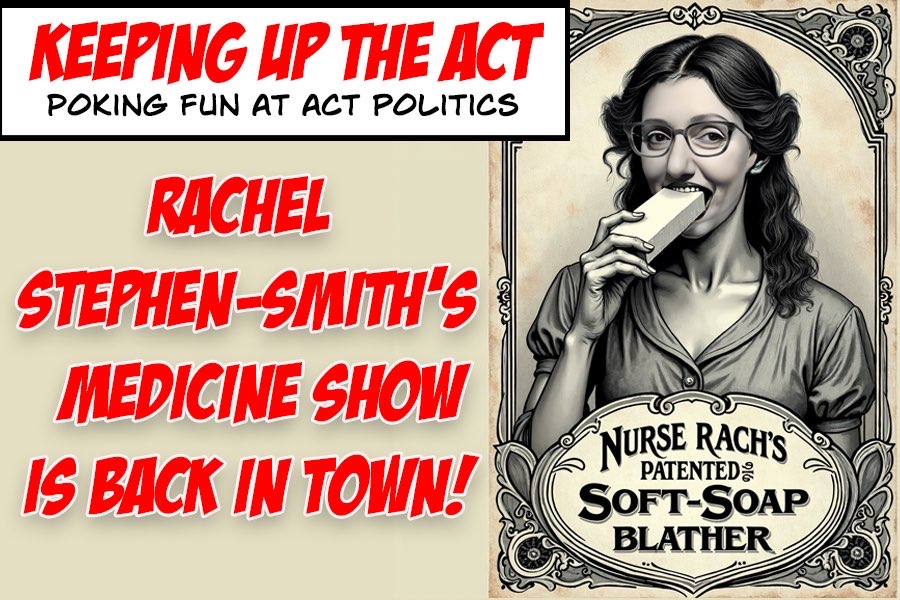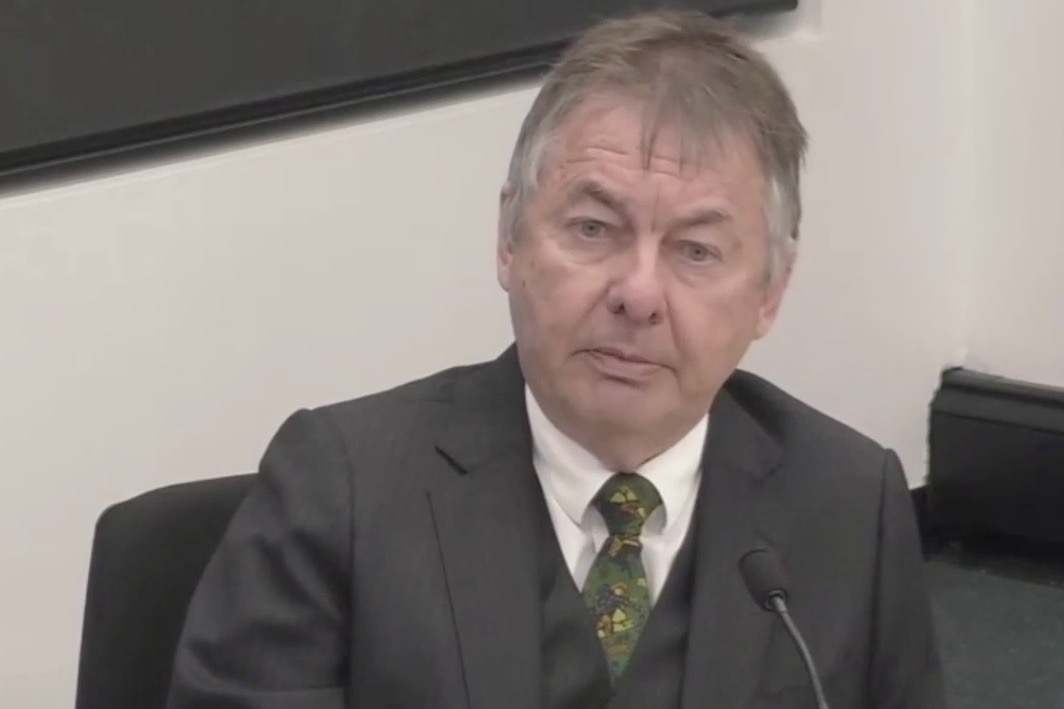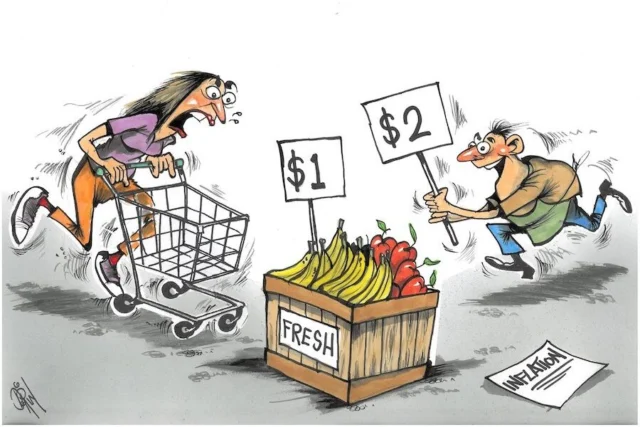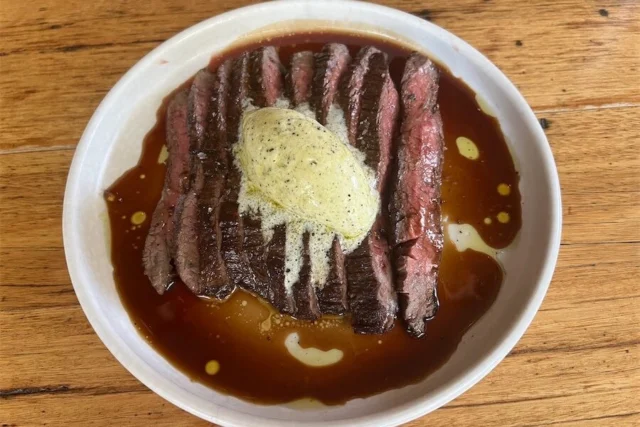
“The vape black market is thriving in Australia and will continue to sell unregulated vapes with unknown ingredients and unknown nicotine levels to anyone of any age who has enough money to buy them,” writes PROF ROSS FITZGERALD.
Australia’s failed prescription policy for vaping nicotine was finally scrapped by a federal Senate vote on June 25. It has been replaced by an utterly unworkable pharmacy supply scheme that begins operating on October 1.

The fact is, pharmacists and vapers both hate the new system. The three flavours permitted (mint, menthol and tobacco) are among the least popular.
No one could answer National Party Senator Ross Cadell’s question when he asked Department of Health officials during the June Senate debate what the criteria for success and the criteria for failure of the new scheme would be. That was not a good sign.
In the ACT, Emma Davidson is the Minister for Population Health and responsible for the territory’s vape policy. A supporter of the ACT vape policy being consistent with her government’s policy of decriminalising drug use, Ms Davidson strongly advocates vapes as being the most popular and most effective aid to enable people to quit smoking cigarettes.
But how can the ACT decriminalise all drugs but retain Draconian penalties for possession of nicotine for vaping?
The evidence keeps mounting that vapes help many smokers quit who have previously failed to stop smoking despite countless attempts using conventional techniques.
Recently, Action on Smoking and Health (ASH) in the UK released figures showing that of the 5.6 million vapers in the UK, 53 per cent said they had managed to quit smoking entirely thanks to vapes. Cigarette smoking used to be more common in the UK than in Australia before vapes but is now significantly less common than in Australia.
The UK government is spending £45 million a year giving one million smokers free vapes, while Australian governments make safer vapes much harder to obtain than deadly cigarettes. One of these countries has got it wrong and it’s not the UK.
Minister Davidson supports tobacco harm reduction and rejects drug prohibition. She was quoted in The Canberra Times (July 2) saying: “Leaving the possibility open for young people to be locked up for having a vape in their possession not only increases disadvantage, but also disincentives young people from accessing healthcare.
“We’ve seen in New Zealand that regulating vapes as a consumer product significantly reduces black market supply and rates of tobacco smoking.”
Ms Davidson is right, and her comments are entirely consistent with what the community thinks the Greens policy is on drug use: namely that drug use should be decriminalised.
NZ and Sweden are leading the world in reducing cigarette smoking. It is expected that both countries will soon be recognised as effectively smoke free (ie smoking rates less than 5 per cent). This has been achieved by providing easy access to smoke-free alternatives.
NZ has achieved this with a policy adopted in 2020 of making safer vapes easier to obtain than deadly cigarettes. Sweden has largely relied on snus, ie pasteurised tobacco in a pouch that is placed between the upper teeth and cheeks.
In Australia all vaping devices are now illegal to import and sell, with the exception of three very expensive TGA-registered products that from October 1 can be legally bought from chemists without a prescription.
Minister Davidson was also quoted as saying: “We need to stop framing vapes as a therapeutic product. Restricting the sale of regulated vapes to pharmacies, and indeed imposing that on pharmacies is no different to expecting pharmacies to sell light beer as an alternative to higher alcohol beer.”
The absence of legislative interventions that will realistically reduce black market vape supply means “that under-18s are now more likely to be the target market than they were before.”
The vape black market is thriving in Australia and will continue to sell unregulated vapes with unknown ingredients and unknown nicotine levels to anyone of any age who has enough money to buy them.
The crime gang territory wars will continue. The fire-bombing of tobacconist shops will continue. Australia has now had 94 tobacconist shops firebombed by criminal gangs fighting turf wars. Young people will continue to have easy access to unregulated and often dangerous products.
After the pharmacy scheme has collapsed, it will be time for Australia to finally adopt the sensible approach we should have adopted all along. We couldn’t do much better than copy exactly what NZ has done. Vapes are an adult consumer product in competition with another adult consumer product – cigarettes.
But while there hasn’t yet been a death scientifically attributed to vaping nicotine, eight million people die each year around the world from a smoking-related disease.
It seems to me extremely likely that, after it has tried every policy that has no hope of working, Australia will eventually end up with a sensible policy position on vaping.
Ross Fitzgerald AM is emeritus professor of history and politics at Griffith University. He writes widely about drug use, and addictions.
Who can be trusted?
In a world of spin and confusion, there’s never been a more important time to support independent journalism in Canberra.
If you trust our work online and want to enforce the power of independent voices, I invite you to make a small contribution.
Every dollar of support is invested back into our journalism to help keep citynews.com.au strong and free.
Thank you,
Ian Meikle, editor









Leave a Reply